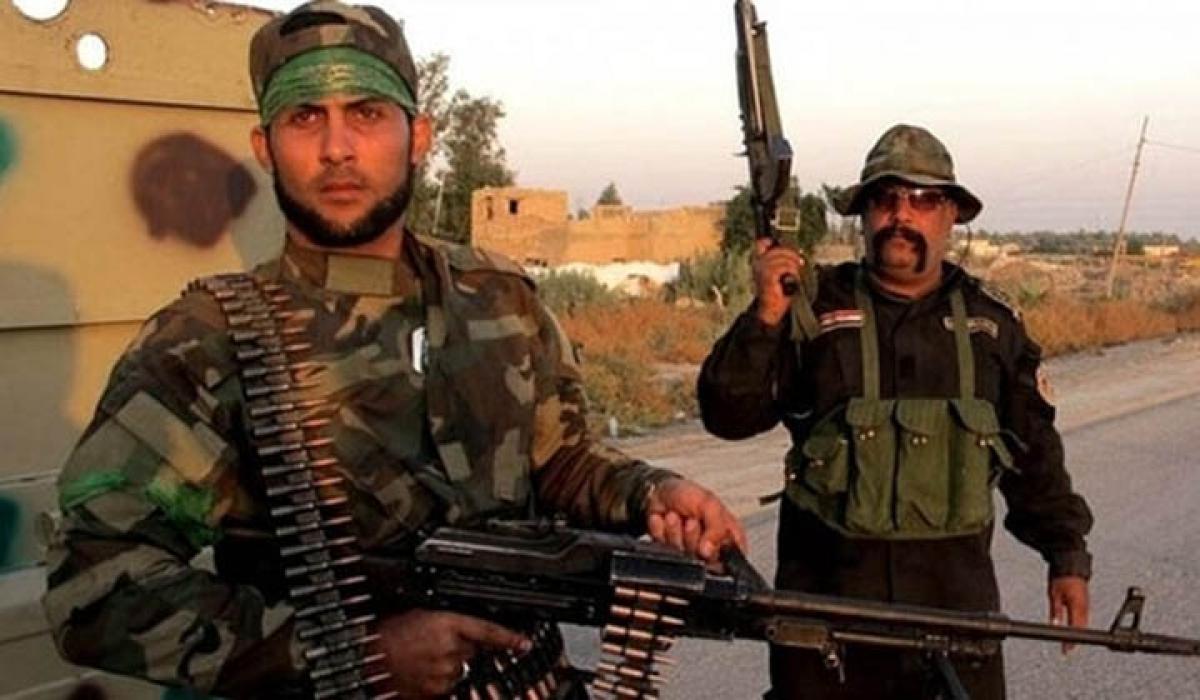Live
- AAP files plaint against BJP leader Chahal
- HC grants relief to actor Mohan Babu, stays police notices
- 'Grateful to all': Didi on INDIA bloc chief's role
- HMWSSB completes 50% of 90-day desilting special drive
- Lot to be done to get rid of manual scavenging: SC
- Cong-AAP 'alliance' will not make any difference
- Don’t rely too much on PAs, Gutha cautions lawmakers
- Facial Recognition Tech leads to arrest of impostor
- Voter 'deletion' issue : Kejriwal-led AAP delegation meets EC
- KTR is daydreaming, flays Sridhar Babu
Just In

x
Highlights
Iraqi Prime Minister Haider al-Abadi rejected the need for foreign troops to fight Islamic State after the Untied States said on Tuesday it was deploying a special operations force, which powerful Shi\'ite Muslim militias pledged to attack.
Iraqi Prime Minister Haider al-Abadi rejected the need for foreign troops to fight Islamic State after the Untied States said on Tuesday it was deploying a special operations force, which powerful Shi'ite Muslim militias pledged to attack.

"We do not need foreign ground combat forces on Iraqi land," Abadi said in a statement.
US Defense Secretary Ash Carter offered few details on the new "expeditionary" group, but said it would be larger than the roughly 50 US special operations troops being sent to Syria to fight the ultra-hardline Sunni militants there.
A US defence official, speaking on condition of anonymity, said the new force would be based in Iraq.
Read: US deploying new force to Iraq to boost fight against Islamic State
Abadi later issued a statement saying the Iraqi government "stresses that any military operation or the deployment of any foreign forces - special or not - in any place in Iraq cannot happen without its approval and coordination and full respect of Iraqi sovereignty."
The premier, who came to power more than a year ago with the backing of the United States and Iran, has had to rely heavily on Shi'ite militias backed by Tehran after the Iraqi army nearly collapsed twice in the face of Islamic State advances in Mosul and Ramadi.
Those armed groups, long mistrustful of American forces since the 2003 US-led invasion that toppled Saddam Hussein and the subsequent occupation, denounced the planned deployment.
"We will chase and fight any American force deployed in Iraq," said Jafaar Hussaini, a spokesman for one of the Shi'ite armed groups, Kata'ib Hezbollah. "Any such American force will become a primary target for our group. We fought them before and we are ready to resume fighting."
Spokesmen for the Iranian-backed Badr Organisation and Asaib Ahl al-Haq made similar statements to Reuters.
"All Iraqis look to (the Americans) as occupiers who are not trustworthy," said Muen al-Kadhimi, a senior aide to the leader of the Badr Organisation.
The militias, grouped with volunteer fighters under a government-run umbrella, are seen as a bulwark in Iraq's battle against Islamic State, the biggest security threat to the oil-exporting country since Saddam's fall.
Russia's larger military role in neighbouring Syria, and its participation in a security coordination cell in Baghdad that includes Iran and Syria, may be deepening US fears that it is losing more strategic ground to rivals in one of the world's most critical regions.
On Sunday, two senior US Republican senators called for Washington to nearly triple military force levels in Iraq to 10,000.
About 3,500 US troops are currently advising and assisting Iraqi forces. In October, a US special operations force member was killed during an operation with Kurdish peshmerga fighters to rescue hostages held by Islamic State in the northern town of Hawija.

Next Story
More Stories
ADVERTISEMENT
© 2024 Hyderabad Media House Limited/The Hans India. All rights reserved. Powered by hocalwire.com







